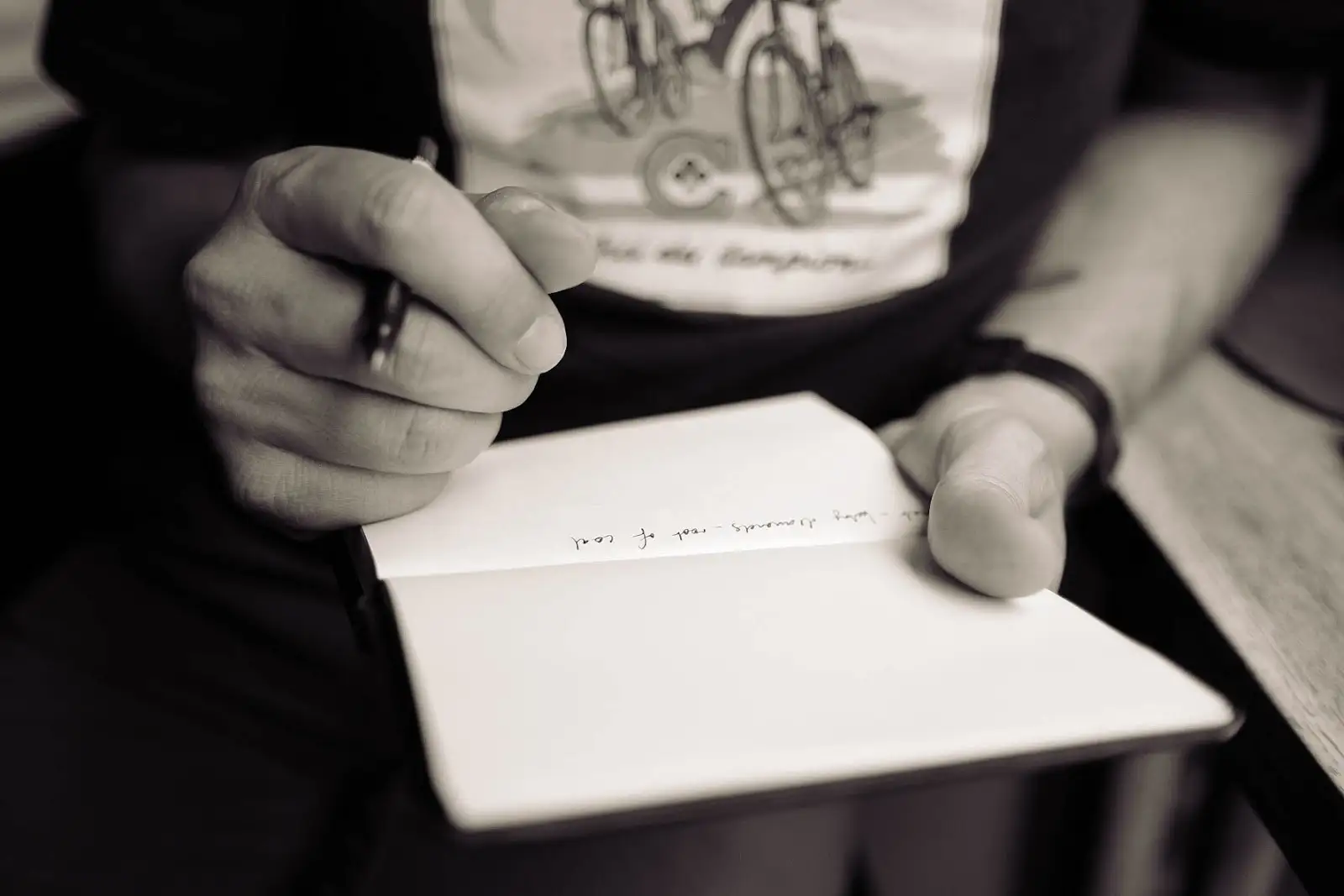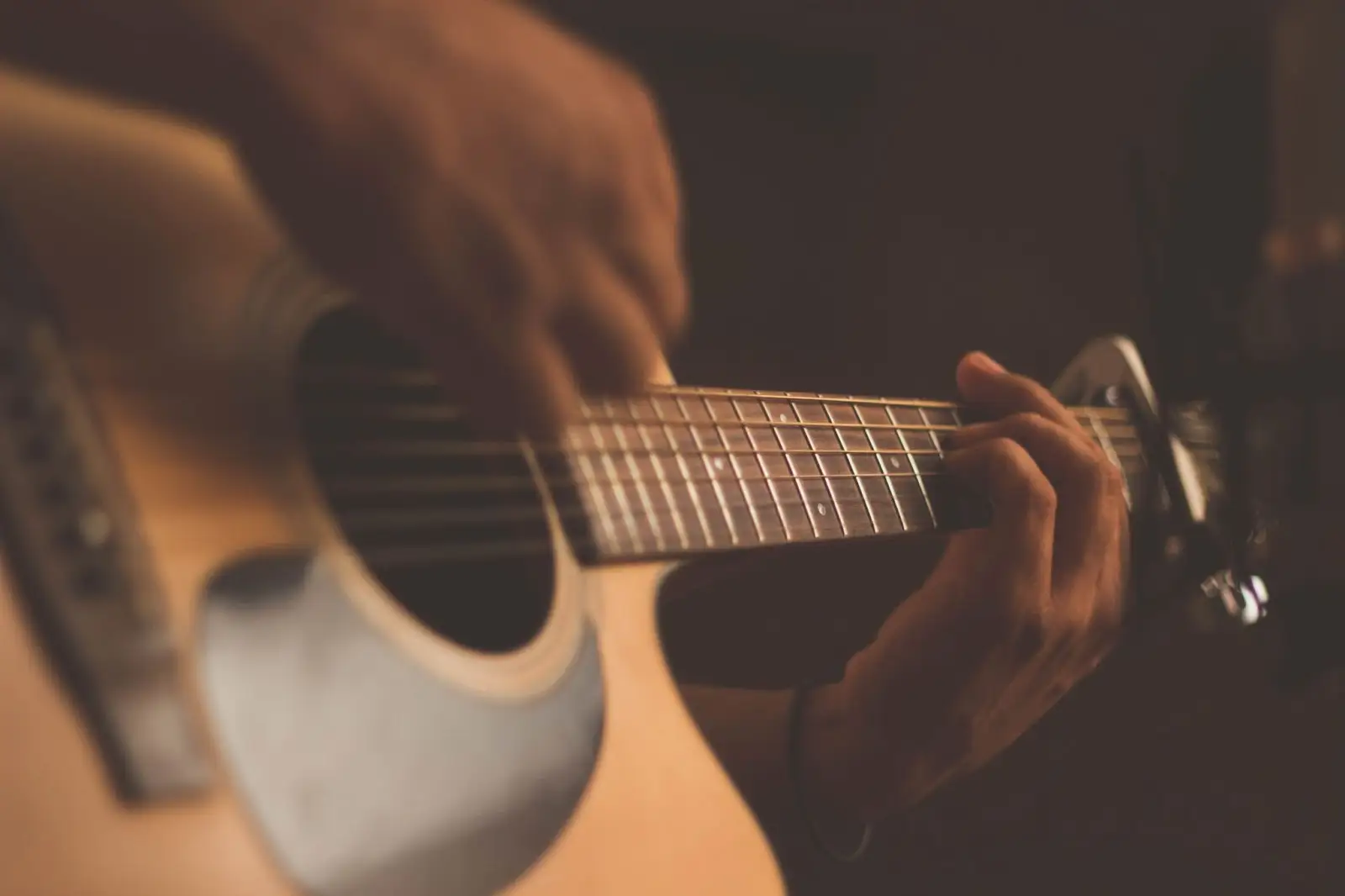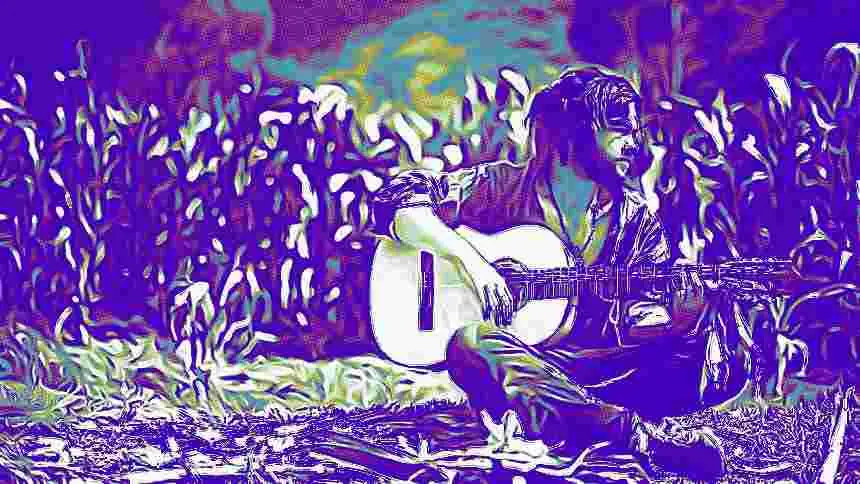It's a question that gets asked a lot of songwriters: do you write music or lyrics first?
There's no one-size-fits-all answer to this. Put ten songwriting teams in a room and you'll have as many responses. It can be a matter of personal preference, but also circumstantial; being stuck in a noisy bus terminal with only a notebook may lead you down the lyrics first route for instance.
In this article we're going to take a deep dive into the different approaches of how to write songs , and how each one can subtly affect the development of a song.
Lyrics First Approach
Most of Elton John's early catalog was written lyrics first. His collaborator Bernie Taupin would write a complete lyric, and Elton John would set it. They wrote many songs together before they even met in person, and even then continued with a words-first collaboration. We're going to look at this thoroughbred approach right now.
Lyric writing is a craft that can be studied and practiced for a lifetime. The trick to writing good lyrics is to leave space for the music to play its part (pun intended). Sometimes this may mean sacrificing a great line to avoid over-crowding, but that's part of the craft of songwriting.
The first thing to establish with the lyrics first approach is your theme, ideally in the form of a title. What's the song about? What are you trying to say? What emotion(s) do you want to convey?
It's important to know where you're going in order to get there. There's nothing wrong with noodling (lyrically or musically), but at some point you need to start your journey.
Once you've settled on your theme it's time to sketch out some lyric ideas. They can be fragments of lines, interesting things you've noticed about your theme, or random words. Jot everything down; you can always come back and edit later.
I prefer writing using pen and paper; words and lyrical ideas can more easily be thrown around the page that way. An alternative to writing lyrics down is to record them in a voice memo (handy if you're walking the dog). You may even come up with a melody while you're doing so and just start singing the song. Then it becomes more of a hybrid approach (see below), but that's ok!

Now you've got some words together based around a theme, start thinking about your song structure. Is it going to be your typical verse-chorus form? Or a less common AABA structure? The structure itself doesn't matter, but the song does need to have one. Otherwise it's like trying to decorate a house before it's been built.
Now it's time to start writing, and craft your words into lyrics. If you're opting for the verse-chorus form, I'd recommend starting off writing lyrics for the chorus since that's going to be the part most people will remember. At this point it's worth mentioning that you don't have to get the entire song written perfectly in one go. It's not uncommon to use 'dummy lyrics' in place of real ones when you know you want something but can't quite put your finger on it. I like to imagine that Katie Perry first wrote the lyric 'tuna fish and apple pie' before deciding on 'Baby, you're a firework' .
Once you're happy with your chorus, go ahead and write a verse . When that's in some sort of shape, write any remaining verses (bearing in mind the less-is-more approach mentioned above). Be sure to make the line length and syllable count match up for the corresponding lines in each verse. If your structure has other sections, like a bridge , go ahead and write more lyrics for them too.
Congratulations -you have an entire lyric! Put it to one side and give yourself some time away from it, even if some bits don't feel quite right. Your brain will continue to process the song in the background as you go about your day. When you come back to your notebook you'll have a fresh perspective and can tweak away to get things just write (too many puns? I apologize...).
Pros and Cons of the Lyrics First Approach:
+ You have a clear, well thought out lyric that will catch the ears of your audience.
- Writing all the lyrics first may not allow room for the music to express what you're trying to say.
Music First Approach
If writing music is more your thing then you'll likely be drawn to the music first approach. Remember to leave space for the lyrics to do their job (unless you're Dream Theater ). You may have a bajillion ideas dying to escape from your musical genius-mind, but they don't all need to go into one song.
The process of the music first approach is similar to what was discussed above. When you sit down to work, think about the emotional landscape of your song. How will you convey that in the chord structure and harmonic landscape? What shape will the melody take? How will tempo affect all of this?
Next, sketch out some musical ideas. It could be chord progressions , a guitar riff, or a bass line (or all three). It's a good idea to throw these sketches into a voice recorder that you always have at hand (god bless the voice memo app!). There is nothing worse than coming up with a great melody, then forgetting it while you run to your computer to boot up Logic. I like to just start recording and noodle around to see what comes out. On my Zoom h1n recorder I can add markers to the file so it's easy to find the best bits when I import it into my DAW.

Again, structure is important. You've got to know what you're building before you start! Once you've decided on the structure, begin building out the different sections. There's no right or wrong way of doing this; you might write the vocal melody first then figure out the chords that work with it, or vice versa. As a side note, this is where some basic understanding of music theory will be your friend. Rather than trying out a whole bunch of chords to see if they work under the melody, you'll know what works and what doesn't.
If you're working in hip hop then it's likely the beat will be the first thing you cook up. When working on new songs, legendary producer Timbaland likes to come up with a beat , and then he and his production team dress it up with music, before adding lyrics.
Finally, give your brain time away from the song so it can figure out new ideas for you. Then send it off to your wordsmith (who may be you) to add lyrics.
Pros and Cons of the Music First Approach
+ You'll likely end up with a highly singable melody and/or hook .
- Developing a melody before the lyrics are written could mean you miss out on a quirky, memorable line.
The Hybrid Approach
Both of the above approaches have taken the path from initial idea to completion without any interaction between the two elements. A more common technique mixes and matches the two, so both are developed at the same time.
This kind of method is typical if you're both the lyricist and the composer, or if you have a co-writer that's in the same room as you. In this situation something will still come first; the inspiration may be one line, or a phrase, or some catchy chords played on an acoustic guitar. Whichever it is - lyrics or music first - doesn't matter. It's all about creating synergy and bouncing ideas off each other (or yourself if you're flying solo).
The steps you'll take to write this way will be the same as above. Decide on the emotional path the song will take; figure out the structure; build the sections; take a break; change words, change chords, and tweak until you're happy. The beauty of this approach is that each element can continue to inspire the other as you write. Lennon and McCartney started out writing songs this way, and I think it's fair to say that they did alright for themselves.
Pros and Cons of the Hybrid Approach
+ Music and lyrics will blend together effortlessly.
- You could end up on an endless merry-go-round of trying different riffs and lyric ideas, and never complete the song.
Lyrics, Or Poetry?
Jim Morrison, front man for controversial 60s rockers The Doors , wrote lyrics. More precisely he wrote poetry, which was then either turned into lyrics, or set to a background of music. Poetry and lyrics, while similar, are two different things. A poem is designed to be self-sufficient, expressing itself without the need for music. Lyrics on the other hand are half of the equation of a song. On their own they may appear simplistic, or even childish. But when a lyric is set to music those inadequacies disappear. There are times when a composer will take a poem and set it to music, but this is more common in classical music.

Turning poetry into lyrics
Perhaps you want to adapt your poetry into song form. How would you go about it?
You've already got your emotional base. The first thing to look at would be structure. The words may not follow a classic song form, so you'd need to craft the words into suitable sections for the form you choose. You'll also want to consider line length and symmetry; each repeated section ( a verse, or an A) will need to follow the same pattern of number of syllables and stresses. Finally, the lyric needs space to allow the music to breathe. Not everything has to be expressed with words - let the other instruments tell their side of the story.
My Perspective
How about my approach to songwriting? At the risk of dodging the question, the answer depends on what I'm working on, and who I'm working with. I'm primarily a musician, so naturally lean towards music writing and vocal melodies. When I'm working on pieces for the theatre I'll work with collaborators, and often we'll trade off who goes first. I might get an entire lyric, or just a section of a lyric to set. I'll come up with ideas for this, and send the lyric back for tweaks, maybe while I write the next section as music only. Other times I'll send music only ideas, maybe with rough vocals using dummy lyrics, for the lyricist to play with. But at all times we all know what the intent behind the song is, and how it's going to be structured.
My collaborators once confessed to me that they sometimes write lyrics over the top of an existing song, using the rhyme scheme, structure, etc. to shape the lyric. They never tell me if they've done this, and definitely never tell me the song (in case the whole thing has to go back to the drawing board). This is a neat trick to use if you're a lyricist working with other musicians and you're having trouble knocking your ideas into shape. It's harder to do this in reverse because it's going to be difficult to not think about the original song when coming up with new music, no matter how hard you try!
For 'regular' songwriting I almost always adopt a hybrid method. For me, it's hard to separate the two, and if I come up with a lyric line I'll inevitably end up singing it in some form. Similarly, if I'm noodling around and like the chord progression or melody that pops out, words will follow. While it's true some of the best songs have been written using on of the first two approaches in this article, ultimately songwriting is a collaborative experience, even if it's between two versions of yourself.
Conclusion
Songwriting is an art form where the music and lyrics complement each other, the song becoming greater than the sum of its parts. Take one element away and you're left with less than half a song. The truest answer to the question at the top of this article is - neither; they both inform each other. Just like the question about whether the chicken or the egg came first, there's no real way to answer it. And more to the point, who cares? It's all about the song in the end.
Since music and lyrics are equally important in a great song it's a good idea to experiment with different approaches to keep your writing fresh. If you're a musician who's only ever written songs by coming up with chords first, try singing a melody into a voice memo, add chords, and then lyrics. If your songwriting process focuses on the words first, try noodling around with some chords and singing around your ideas before adding more lyrics. If you're a hybrid person, why not find a collaborator who only works with words, and let them go nuts on a complete song before you step in. At the very least you'll learn something about your writing style, and what works for you.
Go forth and write, songsmith. The future is yours!





